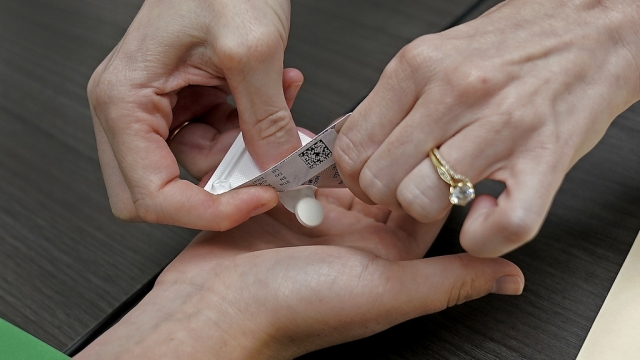Many doctors are playing a continued game of "what ifs" on the future of medication abortion.
"In the OB-GYN community, especially in the abortion provider community, we have been focused on this case since around December," said Dr. Michelle Brown, an OB-GYN at Northwestern Medicine.
"Patients and providers shouldn't be panicking day-to-day — trying to figure out what the law is today and how it's going to change tomorrow — and that's exactly what it's doing. It's causing a lot of confusion and chaos," said Dr. Jennifer Conti, adjunct clinical assistant professor of OB-GYN at Stanford University.
The Food and Drug Administration has approved two drugs taken one after another for medicated abortion: mifepristone first, and later misoprostol. With these medicines, the uterus contracts and empties and cannot grow a pregnancy.
Doctors don't prescribe mifepristone alone for medicated abortions. The FDA has approved mifepristone as a one-dose pill taken up to 10 weeks, or 70 days into a pregnancy. Misoprostol is taken 24 to 72 hours after mifepristone. Doctors can prescribe misoprostol by itself, but it's not preferred.
"The protocol that uses just misoprostol alone, it's slightly less effective than the one that is the combination of mifepristone and misoprostol," said Dr. Josie Urbina, an OB-GYN and complex family planning specialist.
Research shows the combination of mifepristone and misoprostol is 95% effective when taken up to 63 days into gestation and 93% at 64 to 70 days. Additional research shows the combination can be as high as 99%. Misoprostol alone can have efficacy in 78% to 90% of patients.
SEE MORE: Protesters rally outside Supreme Court amid mifepristone legal limbo
Usually efficacy is measured by a "successful pregnancy termination" without the need for a surgical procedure. The National Institute of Health puts it this way: Mifepristone makes misoprostol more potent.
Urbina says misoprostol alone requires multiple doses and can be taken up to three or four times, depending on how far along a person is.
Doctors like Brown, who is based in Illinois, are hearing from more fearful patients worried about how safe or how effective mifepristone is or how well an only misoprostol alternative could work.
"We're not getting into the details of efficacy rates on the phone when we're scheduling that, and we also don't want to unnecessarily alarm patients and say, like, 'Well, if you come in next week, we might only have this less effective regimen,' because we just don't know yet," Brown said.
Meanwhile, a new survey published in JAMA of nearly 20,000 patients across 49 Planned Parenthood and academic abortion clinics found only about a third of patients knew about abortion pills they could use at home. One in 8 considered self-managing with medicine, botanicals or self-harm before attending the clinic, and of those, 1 in 3 attempted to do so.
Some of those patients' reasons included not being to access care and preferring to self-manage at home.
If the Supreme Court does not act right away, after Wednesday, doctors will be told to only prescribe mifepristone within up to seven weeks of pregnancy instead of the FDA-approved 10 weeks.
Doctors could ignore that and still prescribe the drug via off-label use; it's legal and very common. The Agency for Healthcare Research and Quality says 1 in 5 prescriptions of mifepristone are for off-label use.
Trending stories at Scrippsnews.com




